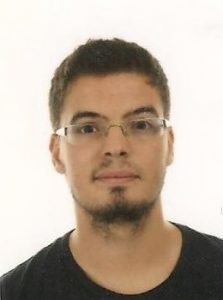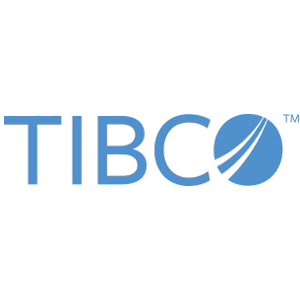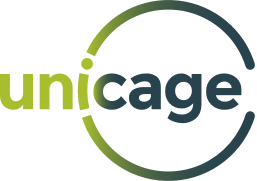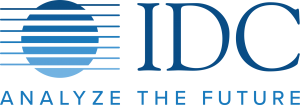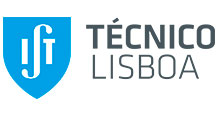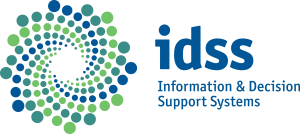| 12th February | 13th February | 14th February | |
| 09:00 |
Opening Session José Borbinha (INESC-ID, IST/UL) & Gabriel Coimbra (IDC)
Contextual Introduction José Tribolet (INESC, INESC-ID, IST/UL)
IDC Market Analysis Perspective: Worldwide Data Management Solutions — Key Vendors & Trends Gabriel Coimbra (IDC) |
(keynote) Multiple Criteria Decision Aiding and Multi Objective Optimisation José Rui Figueira (IST-ID, IST/UL) |
Data in the Blockchain: Clarifications and Demystification Sérgio Guerreiro & Miguel Matos (INESC-ID, IST/UL)
Data Management at ARQUIVO.PT Daniel Gomes (ARQUIVO.PT, FCT) |
| 10:30 |
break (refreshments, included in registration, and networking) | ||
| 11:00 |
Data Science Fundamentals Cláudia Antunes (IST/UL) Entity Recognition in Data Miguel Won (INESC-ID) |
Process Mining José Borbinha (INESC-ID, IST/UL) Adaptive Workflow Rito Silva (INESC-ID, IST/UL) |
An Introduction to Network Science Francisco Santos (INESC-ID, IST/UL) Graph Analysis and Mining Alexandre Francisco (INESC-ID, IST/UL) |
| 12:30 |
break (lunch, included in registration, and networking) | ||
| 13:30 |
Business Intelligence and Analytics Elsa Cardoso (ISCTE-IUL, INESC-ID)
Data Visualisation Daniel Gonçalves (INESC-ID, IST/UL) |
Mining Event Data Rui Henriques (INESC-ID, IST/UL)
Enterprise Cartography Pedro Sousa (INESC-ID, IST/UL) |
Data Challenges in IoT and Cyber-physical systems Alberto Cunha (IST/UL)
(technology demonstration) Location Intelligence Driven Organizations Vasco Pinheiro (Focus BC) |
| 15:00 |
break (refreshments, included in, registration and networking) | ||
| 15:30 |
Data Cleaning Helena Galhardas (INESC-ID, IST/UL)
(technology demonstrations)
|
Technology Demonstrations (vendors)
|
(team exercise) LEGO Serious Play® – Creative thinking through team building Bruno Horta Soares (NOVA IMS, IDC)
Closing Session José Borbinha (INESC-ID, IST/UL) Arlindo Oliveira (INESC, INESC-ID, IST/UL) & Gabriel Coimbra (IDC) |
| 18:00 | the end | ||
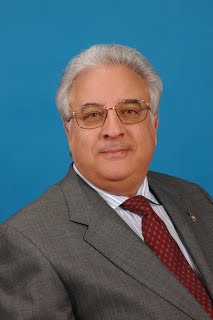 |
José Tribolet is a professor of the Department of Computer Science and Engineering of Instituto Superior Técnico (IST), and a researcher of the IDSS Laboratory of the INESC-ID. He co-founded in 1980 the INESC – Institute for Systems and Computer Engineering, the first not-for-profit, non-state-owned contract based research organization of Portugal, which he presides ever since. His research interests are in the fields of organizational modeling, business process engineering and information systems architecture. Contextual Introduction This will be an informal session, part of the welcome address, to contextualize the participants in the scope of the research and teaching at the IST and of the INESC system. |
 |
Arlindo Oliveira is a professor of the Department of Computer Science and Engineering of Instituto Superior Técnico (IST), and a researcher of the IDSS Laboratory of the INESC-ID. He is a past president of the President of IST and member of the INESC board. His major areas of interest are Algorithms and Complexity, Machine Learning, Bioinformatics and Digital Circuit Design. He published the book “The Digital Mind: How Science is Redefining Humanity“. Closing Session |
|
|
José Borbinha is professor of the Department of Computer Science and Engineering of Instituto Superior Técnico (IST), and coordinator of the IDSS Laboratory of the INESC-ID. His research interests are in conceptual modeling, requirements engineering, enterprise architecture and information management. He is the project manager of the ISO/TC 46/SC 11/WG 15 on Records Requirements in Enterprise Architecture, and is member of the coordination team of the of the eArchiving Building Block of the European CEF program. He was the CIO of the National Library of Portugal from 1998 to 2005. Process Mining This session will introduce the fundamental concepts of process mining, as what is an event log and how to analyze an event log in order to discover, for example, the sequence of tasks, the interactions and collaborations between users, the average time that is spent on performing each task, etc.
|
 |
With more than 20 years’ experience in ICT, Gabriel Coimbra is Group Vice President & Country Manager, IDC Portugal. IDC Market Analysis Perspective: Worldwide Data Management Solutions — Key Vendors & Trends This introductory talk will present, as a generic background, the IDC market analysis perspective on worldwide data management solutions. |
 |
José Rui Figueira is Associate Professor with Habillitation Diploma at Universidade de Lisboa and researcher at CEG-IST, Center for Management Studies of Instituto Superior Técnico. Professor Figueira taught and did research also at University of Evora, University of Coimbra, Nancy’s School of Mines (as Full Professor). He is a former member of LAMSADE (University Paris-Dauphine), INESC-Coimbra and DIMACS (Rutgers and Princeton Universities) research centers. He obtained his PhD in 1996 in the field of Operations Research from University of Paris-Dauphine and his HDR at the same University in 2009 in the field of Multiple Criteria in Operations Research and Decision Aiding. His current research interests are in decision analysis, integer programming, network flows, and multiple criteria decision aiding. He is the co-editor of the books, “Multiple Criteria Decision Analysis: State of the Art Surveys, Springer Science + Business Media, Inc, 2016 (2nd edition) and “Trends in Multiple Criteria Decision Analysis, Springer Science + Business Media, Inc, 2010. He currently serves as a coordinator of the European Working Group on Multiple Criteria Decision Aiding and Member of the Executive Committee of the International Society on MCDM. He is Associate Editor of JMCDA, and member of the board of EJOR and belong to the advisory board of other scientific international journals. He was awardee in 2017 with the Gold Medal of the International Society on MCDM, and elected its president in 2019. Multiple Criteria Decision Aiding and Multi Objective Optimisation (keynote) In this talk we shall present the main steps of a multiple criteria decision-aiding/making methodology as well as the different problem statements whiting such a methodology. For each problem statement a vast panoply of methods can be used. They can be classified in there main categories: rule systems based methods, value function based methods, and outranking based methods. We focus particular attention in the latter for the classification problem statement. In addition, we provide an brief overview of multi-objective optimization, mainly for linear programming problems and combinatorial optimization. |
 |
António Rito Silva is a professor of the Department of Computer Science and Engineering of Instituto Superior Técnico (IST), and researcher at INESC-ID, in the Software Engineering group, where he promotes activity on Social Software Engineering research, focusing on the interaction between people and software. He has been involved on the design and development of software systems for Digital Humanities, Flexible Workflow Systems, and Microservices architectures. Adaptive Workflow Business process management has been focusing on the optimization of work by enforcing a standard behavior shared across the organization. However, this emphasis on optimization and standardization is not suitable to the type of work where knowledge workers are involved due to limitations in the flexibility of the business processes. Therefore, this talk will present a set of proposals that relax the traditional approach to business processes based on the optimization, and provide to the knowledge workers the complete context of execution, such that they can take informed decisions when performing their work. |
 |
Pedro Sousa is professor of the Department of Computer Science and Engineering of Instituto Superior Técnico (IST), and a researcher at INESC-ID, in the IDSS laboratory. He also work at Link Consulting, were is responsible for Enterprise Architecture and Cartography professional services in significant organizations in several industries, public and private, national and international. Enterprise Cartography Enterprise cartography deals with methods and tools to allow an organization to have updated representations of its architecture at any given moment, given a pipeline of ongoing and approved transformation initiatives. With so many changes underway, organizations have difficulty to keep track of the systems (components) and their dependencies along the time. As a consequence, organizations tend to delay as much as possible the detailed planning of transformation activities, with an impact on actual costs, time and risk. This talk presents a cartographic approach and the Atlas tool that enable organizations to keep enterprise architecture views up-to-date with near zero effort since the necessary information to perform the updates already exists in transformation initiatives plans. |
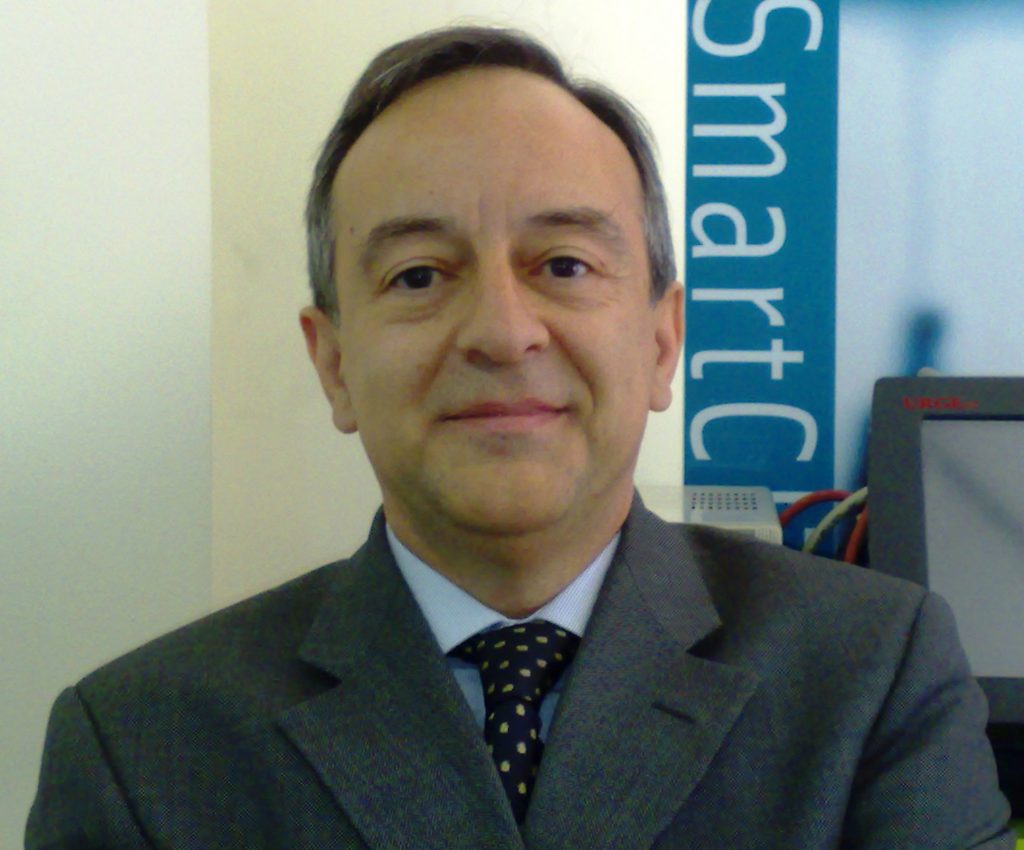 |
Alberto Cunha is a professor of the Department of Computer Science and Engineering of Instituto Superior Técnico (IST). He was a researcher at INESC were he was involved in the design, development, and technology transfer, of innovative systems for office automation and electronic ticketing. He was member of the BoD of the Aitec-Link group with particular responsibility in the design of solutions and products for the Transports and Mobility sector. In 2009 he co-founded YouMove-Card4Business which developed many of the electronic ticketing systems for public transport in Portugal. From 2010 to 2013 he was member of the BoD of Taguspark, the main Science and Technology Park in Portugal, responsible for the bootstrap and operation of Taguspark business Incubator for technology-based startups. IoT Challenges Electronics and sensor technologies enable mobile and personal devices and equipment (smartphones, smart cards and tags) with considerable computing and communication power, and will enrich our surrounding environment with sensory and reactive capabilities. The orchestration of all this potential, integrating Internet-based as well as specialized heterogeneous sub-systems, is the foundation of cyber-physical systems able to adapt in time to the context of use. In this lesson we will address:
Finally we will analyze some cases of application of these technologies to monitor human activities and services. |
 |
Jacinto Estima is a Professor at Universidade Europeia and a researcher at INESC-ID, in the IDSS laboratory. He is currently working on problems related to GeoAI, which encompasses the combination of techniques from the fields of geographic information science (GIS) and artificial intelligence (AI). Jupyter Notebook This session will provide a demo of the Jupyter Notebook technology: “The Jupyter Notebook is an open-source web application that allows you to create and share documents that contain live code, equations, visualizations and narrative text. Uses include: data cleaning and transformation, numerical simulation, statistical modeling, data visualization, machine learning, and much more.“ |
|
|
Diogo Proença is a Researcher at the IST-ID (former post-doctoral researcher at INESC-ID, in the IDSS laboratory). He is currently working in research projects in decision support with MCDA techniques, in information retrieval and in technology transfer in long-term information assurance (this one in the scope of the eArchiving Building Block of the European CEF program). João Castanho is an MSc student at the IST (Instituto Superior Técnico), and a junior researcher at the INESC-ID, in the IDSS laboratory. Elasticsearch with Kibana This session will provide an overview and demonstration of the technology Elastisearch (a search engine based in Lucene) and Kibana (a dashborad for data visualization of data managed by Elasticsearch). |
 |
Cláudia Antunes is a professor of the Department of Computer Science and Engineering of Instituto Superior Técnico (IST). She has been working on algorithms and methodologies for pattern mining, from transactional to structured data. Her main interests are centered on mining complex knowledge from complex data, with emphasis on the incorporation of background knowledge in the data mining process. Her work has been around the usage of domain ontologies to represent that knowledge, and she has been working on methods to efficiently mine patterns, guided by that knowledge. Data Science Fundamentals What is data science and how does it work? Is it the new saint Graal and the solution for all problems? On a time, when everything is ‘intelligent’ and automatic, what is the role of humans? This talk tries to give some answers to those questions, demystifying the terms and the differences to artificial intelligence and machine learning. |
 |
Miguel Won is a Post-Doctoral researcher at INESC-ID, in the IDSS laboratory. He is currently working in the domain of Natural Language Processing (NLP) applied to Political and Communication Sciences. Named Entity Recognition in Text-as-data (demo) Within the context of text-as-data paradigm, new type of analysis and metrics are today available to the political science research, allowing new and different approaches that previously were virtually impossible. In this short talk Miguel will show how text processing, in particular named entity recognition and key-phrase extraction tools, can help and guide political scientists in their research questions. |
 |
Rui Henriques is professor of the Department of Computer Science and Engineering of Instituto Superior Técnico (IST), and a researcher at INESC-ID, in the IDSS laboratory. He was AI and Data Science team leader at Tekever, and a Post-Doctoral Researcher at Kyushu University. Mining Event Data This lecture will provide the essential principles and a structured view on how to learn from complex temporal data. |
 |
Helena Galhardas is professor of the Department of Computer Science and Engineering of Instituto Superior Técnico (IST), and researcher of the IDSS Laboratory of the INESC-ID. Her research interests are in databases and data management, in special in problems of data transformation and clean, ETL (Extraction, Transformation and Loading), Data Integration, Data Profiling and Information Extraction. Data Cleaning Clean your data if you care about its quality. Data wrangling is crucial to ensure that data is appropriate and ready to be used for analytic purposes. Often raw data comes with a myriad of different types of errors and inconsistencies. Thus, data transformations have to be performed before we can extract meaningful knowledge from our data. Raw data has to be transformed until we reach a criteria of data quality. This is why data wrangling comes with a distinct but no less important task: data quality assessment. In this lesson, we will first introduce the notion of data quality as an activity that encompasses two main tasks:
Second, we will explain the notion of data profiling which enables to assess the quality of a data set. Third, we will describe one of the main tasks of a data cleaning process that consists on the identification and consolidation of records that concern the same real world entity, also called approximate duplicate records. Finally, we will list some of the main data quality tools. |
|
|
Francisco Santos is a professor of the Department of Computer Science and Engineering of Instituto Superior Técnico (IST) and researcher at the Group on Artificial Intelligence for People and Society (GAIPS) of the INESC-ID. He is interested in applying and developing modelling tools to understand collective dynamics in social and life sciences. He has been working on problems related to the evolution of cooperation, human social norms, network science, and environmental governance, among others. Francisco was distinguished with the 2017 Young Scientist Award for Socio- and Econophysics of the German Physical Society. Alexandre Francisco is a professor of the Department of Computer Science and Engineering of Instituto Superior Técnico (IST), and a researcher and co-coordinator of the IDSS Laboratory of the INESC-ID. He is interested in algorithm engineering and computational science, and has been involved in several projects on computational biology, bioinformatics, graph mining, data and network analysis. An Introduction to Network Science + Graph Analysis and Mining These two coordinated lectures will provide the fundamental concepts and techniques on network analysis and graph mining. In particular, we will discuss large graph representations, the computation of many vertex/edge centralities, community detection and pattern mining on graphs. |
 |
Elsa Cardoso is Assistant Professor at Instituto Universitário de Lisboa (ISCTE-IUL), in the Information Sciences and Technologies Department of the School of Technology and Architecture, and a researcher of the IDSS Laboratory of the INESC-ID. She was the Director of the Master in Integrated Business Intelligence Systems at the same university and the leader of the Business Intelligence Task Force of EUNIS (European University Information Systems organization). She is also a researcher at the IIDSS Group of INESC-ID. Elsa has a PhD in Information Sciences and Technologies from ISCTE-IUL, with a specialization in Business Intelligence. Her research interests include business intelligence and data warehouse, data visualization, and strategic information systems (balanced scorecard) applied to Higher Education, Healthcare and Digital Humanities. Business Intelligence and Analytics We have been developing Business Intelligence (BI) systems for decades and BI techniques have become pervasive in many areas, including business process management. Current demands in terms of the massive volume and variety of data that is being generated poses new challenges to existing architectures. How can organizations adapt to this “data-rich environment” and effectively use data for decision making? In this talk we will address this issue and discuss different types of analytics projects. |
 |
Daniel Gonçalves is a professor of the Department of Computer Science and Engineering of Instituto Superior Técnico (IST),and a researcher at the Visualization and Multimodal Interfaces Group of INESC-ID. His research encompasses the areas of Information Visualization, Personal Information Management and Accessibility. He has published over 160 peer-reviewed papers publications in those areas, as well as being the co-author of a textbook on Human-Computer Interaction. Data Visualization One of the most effective ways to make sense of a dataset is to leverage our ability to visually identify interesting items patterns, by using Information Visualization (InfoVis) techniques. In this lesson we will focus on some of Information Visualization’s best practices that can provide meaningful insights steering away from spurious or incorrect conclusions. |
|
|
Sérgio Guerreiro is an Assistant Professor at Instituto Superior Técnico of the Universidade de Lisboa and a researcher at the IDSS Laboratory of the INESC-ID. He obtained his PhD in Information Systems and Computer Engineering at IST. His research interests are located in enterprise engineering, enterprise architecture, process mining, process compliance and business processes design. Miguel Matos is an Assistant Professor at Instituto Superior Técnico of the Universidade de Lisboa and a researcher at INESC-ID in the Distributed Systems Group. His research interests lie on the area of distributed systems, in the subjects of scalability, consistency, and performance. In particular, he is conducting research in blockchain and related problems, consistency in large scale databases, and automation and reproducibility of performance and scalability evaluations in large scale systems. Previously, I was at Post-doctoral researcher at INESC TEC / HASLab, collaborated with LeanXcale and co-founded MIMA Housing. Sérgio Guerreiro and Miguel Matos are members of the research team of the INESC-ID engaged in the international project QualiChain. Data in the Blockchain – Clarifications and Demystification This talk will provide and overview of the concept of distributed ledgers and technology implementing that concept as blockchain, followed by a discussion of the potential and limitations of the use of this kind of technology for data storage and data management (students will be motivated to engage in this discussion, as an opportunity to clarify any kind of potential issues). |
 |
Daniel Gomes started Arquivo.pt, the Portuguese Web-Archive, in 2007 and currently leads this public service. He obtained is PhD in Computer Science in 2007. His thesis focused on the design of large-scale systems for the processing of web data. He is a researcher in web archiving and web-based information systems since 2001. Data Management at ARQUIVO.PT Arquivo.pt – the Portuguese Web-Archive is a research infrastructure that preserves millions of files archived from the web since 1996, containing information in several languages. It provides a public search service over this information. |
|
|
Vasco Pinheiro holds a degree in Software Engineering, with specialization in Artificial Intelligence, by Instituto Superior Técnico in Lisbon and Post-Graduate in Marketing from ISEG, has a wide experience in Business Consulting, Solutions and Information Technology, Geographic Information Solutions and has served as Technical Director, Operations Manager Director and Executive Director, in consulting and information technology companies.
As part of its responsibilities has developed vision and value propositions to the markets of action and new markets, developed strategic plans and supported the development of Business Units, in strategic and operational aspects. It has over 20 years of experience in Business Consulting, Location Intelligence, Collaborative Platforms and Business Solutions in domestic and international customers, operating in the Consumer Goods, Transport and Logistics, Telecommunications, Utilities, Defense and Security Natural Resources, Financial Sector, Central and Local Administration.
Its core competencies and areas of action are Strategic Management, Business Development, Organizational Performance Management, Location Intelligence, Process Definition and Reengineering, Marketing, Social Media, Social Communication and Collaboration, Enterprise Communication and Collaboration. Location Intelligence Driven Organizations
Data is an asset used to support organisation’s strategy. Mapify (mapify.ai) is a location intelligence platform to prototype and build scalable enterprise solutions. Enrich and engage data on a real world context to deliver business value.
|
 |
Bruno Horta Soares is Leading Executive Advisor at IDC Portugal, for Digital Transformation, Governance, Strategy and Security. He has a 5 years degree in Management and Computer Science, from ISCTE and a post-degree in Project Management, from ISLA Campus Lisboa. He is certified in Project Management Professional (PMP), from PMI, Certified Information Systems Auditor (CISA), Certified in the Governance of Enterprise IT (CGEIT) and Certified in Risk and Information Systems Control (CRISC) and COBIT 5 Foundation from ISACA, ITIL® version 3 Foundation and ISO/IEC 27001 LA . He’s also APMG individual accredited trainer for COBIT 5. He is the founding President of the ISACA Lisbon Chapter, member of several professional associations in the areas of Auditing (IIA), IT Governance (ISACA, IPCG), and Project Management (PMI) and keynote speaker at various conferences and seminars. LEGO Serious Play® – Creative thinking through team building (team exercise) Lego Serious Play is a facilitation method to improve creative thinking and communication using Lego blocks. It is fun but at the same time serious and very efficient in brainstorming. An exercise will be proposed in the first day of DELix, which the students will be asked to address in groups, and consolidate and share in a final Lego Serious Play workshop session. Symbolic prizes will be waiting for the the best groups!!! |
Technology Demonstrations (vendors):
|
|
This session will consist in demonstrations of technology by key vendor players in the market, with the purpose to provide an overview of the state of the art. An open discussion with the vendors will be encouraged… |
|
|
Vanessa Ramos is a Business Intelligence Project Manager at Xpand IT. She started her career as a developer 5 years ago. During this period she had the opportunity to work on the implementation of business intelligence solutions across many different industries and using technologies like Pentaho, Tableau and Power BI. Currently as Project Manager at Xpand IT, she manages projects using mainly agile methodologies, but also performs training sessions worldwide and oversees the team. She is a data enthusiast as well as a Tableau, Pentaho and Power BI fan. Data Visualization with Tableau Tableau is the leading software for BI & analytics, allowing people to see and understand their data. Data is at the heart of organizations and the fact that Tableau is so intuitive allows users to answer questions about their business faster than ever. During this presentation you will see Tableau in action, going from data to business insights in minutes and even how to leverage Tableau extensions to bring business processes into this modern BI environment |
|
|
Paulo Pires is a Geographical Engineer that 8 years ago at the early thirties decided to apply his skills in the Business Intelligence area. He is a Senior Consultant of Hitachi Vantara, with several years of experience in Pentaho Software, Data Modelling and Business Intelligence. In his role he specialized in frontend dashboards with CTools and Pentaho Software, applying his knowledge in HTML, Javascript and his libraries, CSS, and also developing backend ETL to support the visualizations. As hobbies he likes to explore new technologies and lately has been exploring in home automation and IoT with nodeJS, sonoff sensors and mosquitto broker. Real Time Analysis and Visualization with Pentaho Pentaho is one of the main products of Hitachi Vantara and is the leading open source end to end framework in Analytics. Pentaho provides data preparation, enrichment and analysis with a GUI approach using the PDI tool, and complements that functionality with a rich visualization layer where that data is presented. On this presentation you will see how to ingest real-time data using PDI, transform that data, and make it available to be consumed by other tools and processes. Additionally, you will also see some pre built dashboards to realize how Pentaho can help you visualize your data |
|
|
Sam Borni is a Senior Solutions Consultant for TIBCO responsible for the EMEA, LATAM & APJ regions, specialising in TIBCO’s Unify pillar.
Data Management with Unify Unify within TIBCO encapsulates the data management and governance capabilities of TIBCO software, including those of master data management, metadata management and data virtualisation. With over five years of experience in the data management space, Sam will discuss who TIBCO are, what TIBCO provide to customers through their Connected Intelligence platform, and present a demonstration on how governance processes can be implemented within an organization using TIBCO’s market-leading solution, TIBCO EBX. |
|
|
Daniel Ferreira is a senior sales engineer at MicroStrategy based in Lisbon. Graduated in Computer Science and Engineering from Instituto Superior Técnico in 2004, he has now over 15 years of experience in Business Intelligence and Analytics. He delivered proof of concepts and developed MicroStrategy projects in Portugal, Spain, Netherlands, Denmark, Switzerland, Poland, Angola, Israel and New Zealand. Already twice recognized with the MicroStrategy Best Collaborator Award, Daniel was previously a member of the Consulting and Education departments for three years before joining the Pre-Sales.“ Hot to make your data Hyper Intelligent? MicroStrategy 2020’s open architecture empowers organizations to leverage AI at all levels, and users can further augment BI solutions with HyperIntelligence to improve business operations. Adding machine learning to analytics, data scientists can easily take advantage of MicroStrategy Governed Data and inject ML into users’ daily workflows. The session includes a demonstration on how to build freeform Dossiers and the different ways to augment BI, including adding predictive insights and recommendations to HyperIntelligence Cards. |
|
|
Carlos Cruz, Miguel Ferreira, Catarina Mota. UNICAGE technology for data processing UNICAGE is a tecnology from USP Lab: “Unicage is a scalable development framework with simple yet powerful UNIX-based shell script commands to securely transfer and process data. Unicage focuses on three business lines:
|



